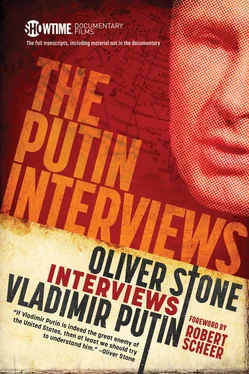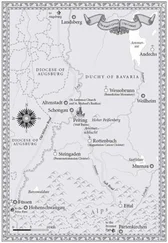OS:And Mr. Erdogan never said anything to you, he never whispered…?
VP:No, he told me that he suspected Gülen and his organization, his movement, of organizing that coup d’état. He has never told me anything about the role of the United States. But I can see his logic—you can guess it. If indeed Mr. Gülen had taken part in this coup d’état attempt—of which I have no idea—it would be very hard to imagine that at least the intelligence services of the US would be unaware of what was happening. That’s the first thing. Secondly, the Air Force stationed at the Incirlik Air Base has been active in this coup d’état attempt. And that is exactly the air base where the main part of the American Air Force that is stationed in Turkey is located.
We are a little bit concerned. And why is that? The thing is, tactical nuclear weapons are deployed in Turkey, US nuclear weapons. And when such dramatic events occur, the question arises as to what might happen to the nuclear warheads.
OS:Well, if the army is loyal to Erdogan, then I’m not sure. A lot of them are involved with the United States.
VP:Well, probably you know better than I do.
OS:Well, he rounded up a lot of military people.
VP:You know, Mr. Erdogan was one step from being assassinated. He moved from the hotel where he was staying. Some of his security officers were staying there. And one of the Special Forces, a commando from the armed forces came to him, there was a clash with his security officers and his security officers were killed. I think we can say that if Erdogan had stayed there than he would have been assassinated. These are just bare facts from which I infer no conclusions whatsoever. But this is what happened. I do not want either to analyze or give an assessment to what he did afterwards. But we know the historical role that the armed forces have been playing in Turkey. They’ve been the grantor of a secular avenue of development in the country. We’ve got this Golden Rule which we stick to—we never interfere within the domestic affairs of any country.
OS:Not even the US election?
VP:No, never. It’s up to the people of the country.
OS:I believe you.
VP:You know, even earlier, sometimes half as a joke, half on a serious note, we were saying that the American Constitution was not perfect.
OS:The Electoral College.
VP:Yes, absolutely right. Because the elections are not that direct. There was this electoral college that you mentioned. But their response was always, “This is none of your business. We’re going to sort it out ourselves.” So we do not interfere, either within the domestic affairs of the US or any other country. We have not interfered in Turkey.
OS:How close were you to a war—the United States said to Syria you crossed the red line in 2013 and General Shoygu, your Defense Minister said the Syrians were about to launch a massive attack of 624 cruise missiles within 24 hours. And it probably would have ended the sovereignty of the Syrian state at that point, when Obama said they crossed a red line, and you were involved with that, in stopping that and in removing the gases, the chemical weapons from Syria. How close was it? And were you worried about a US strike on Damascus?
VP:Honestly, I don’t know—I think you’ve got to ask the Obama administration about that, about how close they were to the brink of war, to making that decision. Another decision finally was made, luckily.
OS:You were involved in it.
VP:Yes, I was, when the G20 Summit took place in St. Petersburg, President Obama and I, we talked about this topic. And we agreed to try to take steps to eliminate the remains of chemical weapons in Syria.
OS:You sound very casual. It doesn’t sound right. I mean, if Shoygu said 24 hours, you guys have to be worried about it. This is your ally.
VP:Well, it’s all about the subjunctive mood, so to speak. Be that as it may, both I and President Obama agreed to work together back then, and luckily our joint work resulted in success.
OS:Well, you make it sound casual, but weren’t you worried that your ally would disappear and maybe ISIS was going to get all the way to Damascus right then and there? Didn’t you see all the implications of this?
VP:Yes, certainly we were concerned. And that’s why we talked about how we could address that matter with other means and we were successful in doing that.
OS:You seem very cool about it, but I would imagine in that time period it might have been much tenser.
VP:Look, what happened back then happened back then. And right now we have a very well-organized and well-performing system of air defense deployed there.
OS:Ah!
VP:—We have the S-400, with a range of more than 300 kilometers, S-300, also with a range of 300. The DEBO system with a range of 60 kilometers. And there are other systems that are more efficient in the shorter range. So we’ve got a multi-tier plan for air defense. And there are also the ships stationed off the coast that all also have this system of air defense.
OS:So you could have prevented it?
VP:And the most sophisticated air defense systems with a range of 300 kilometers.
OS:Well that’s some conversation you’re having with Obama—you’re saying Russian weapons are going to shoot down US weapons and you’ll have an international crisis. It’ll be quite a situation. The Pentagon is going to go wild, no? You know, this is close to war.
VP:Back then, we didn’t have those missiles in Syria.
OS:Oh, I thought you did.
VP:Our missiles were not active in Syria back then.
OS:Well, you had a long-term alliance with them since the early 1970s?
VP:Yes, but we didn’t take any part in what was happening there. We were just providing medical and technical military assistance to them, financial assistance.
OS:So, in other words, if the Assad regime had been, let’s say, weakened, would Russia have come to help it against an ISIS move towards Damascus?
VP:This once again depends on the subjunctive mood, and it’s difficult to talk about, because it’s all about myriads of factors that have to be taken into account.
OS:Let’s talk about another war situation since we’re in the Situation Room. More recent. In the Crimea, when the referendum was coming up, the US destroyer Donald Cook was moving towards the Black Sea with Tomahawk missiles. Correct me if I’m wrong, but I saw a documentary… Well, first of all, NATO announced military drills in the Black Sea and the Russian naval commander was talking about how close—in this documentary—was talking about how close Russia came to using its missile system for coastal defense. The US ship Donald Cook was apparently coming right into the Black Sea when it made a U-turn and didn’t carry through its mission. [179] Claim: “The US ship Donald Cook was apparently coming right into the Black Sea when it made a U-turn and didn’t carry through its mission.” See, “A strange recent history of Russian jets buzzing Navy ships,” Thomas Gibbons-Neff, The Washington Post (April 14, 2016). Retrieved at: https://www.washingtonpost.com/news/checkpoint/wp/2016/04/14/a-strange-recent-history-of-russian-jets-buzzing-navy-ships/
It seems like it was similar to the Cuban Missile Crisis when the same thing happened, where a ship was coming towards the demarcation line and made a U-turn because it had been threatened by the US Navy back in 1962. So where were you at this time when this Donald Cook situation was happening and were you nervous about his?
Читать дальше












